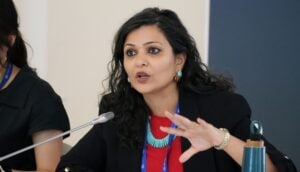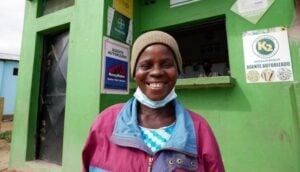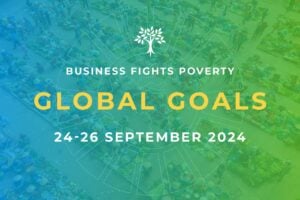By Paul Polman, CEO, Unilever and Mark Gunton, CEO, Clinton Giustra Enterprise Partnership
In New York last week global leaders adopted a set of ambitious goals and targets to set the world on a new course. The Sustainable Development Goals (SDGs) have committed us to eradicating extreme poverty, fighting injustice and inequality, and taking urgent action on climate change. It is clear that we have reached a tipping point for change in 2015 – a once in a lifetime opportunity to solve some of the world’s most pressing problems.
With the Goals agreed, attention now switches from what we want to achieve to how we are going to do it. The most recent figures show that 17 percent of people in the developing world still live at or below $1.25 a day[1] and an estimated 2.4 billion are without access to adequate sanitation.[2] The Post-2015 agenda presents a historic opportunity to set the world on a pathway for a different kind of future.
In order to make the SDGs a reality transformative partnerships between business, civil society and government are essential. As UK Secretary of State for International Development, Justine Greening recently put it; “We need to unleash new finance, expertise and innovation to turbo charge development … using the best in our resources, networks and know-how.”
Last week one such partnership – Transform – was announced by Unilever, the UK Department for International Development (DFID) and Clinton Giustra Enterprise Partnership (CGEP). Transform will see us join forces to create jobs, increase incomes, and improve the health and well-being of 100 million people in Africa and South Asia by 2025.
Transform is a five year, minimum £10 million, initiative that will initially focus on water, sanitation and hygiene, with the potential to expand to household energy. It will identify and develop social business models that serve low-income households and contribute to the evidence base around behaviour change, with a focus on digital and mobile, to improve health and well-being on a large scale.
It is the first initiative to be launched since Unilever and DFID committed to working together to help the world’s poor in 2014 – the first partnership of its kind between a leading international business and DFID. CGEP joins as the first Project Level Partner, bringing its expertise in last-mile distribution. All three organisations will engage their global teams across Africa and South Asia in a collaborative process to provide funding and deliver technical expertise and capacity building to support Transform.
Each of the partners bring their own experience and expertise to ensure Transform has the maximum impact for some of the most vulnerable people in the world. Working with DFID, Unilever brings scale and skills to create markets and innovation, while CGEP’s last-mile distribution enterprise models have the potential to provide work and income to countless numbers of women living in low-income communities in developing countries. Together, we can de-risk innovative projects that would otherwise not make it to market and improve access to hygiene, sanitation, water and energy, while creating jobs in low income communities.
As everyone heads home from New York and the dust settles on the SDGs it is vital that we grasp the opportunity for transformational change. History was made last week, but now the hard work begins.
A call for project proposals will be open, via Unilever’s Foundry platform, which was launched in 2014 as a hub to collaborate with innovative digital marketing startups. That platform is being expanded to enable social entrepreneurs to engage and partner with Unilever. Please visit https://foundry.unilever.com/brightfuture/transform for further details.
Transform is open to all partners who can make a contribution to the overall success of the initiative, bringing complementary skills and expertise. For further information about becoming a partner please contact Clive Allison at Cl***********@Un******.com.
[1] World Bank, 2011 http://www.worldbank.org/en/topic/poverty/overview Last updated April 6 2015
[2] WHO/UNICEF Joint Monitoring Programme (JMP) for Water Supply and Sanitation, Progress on sanitation and drinking water: 2015 update and MDG assessment, June 2015









